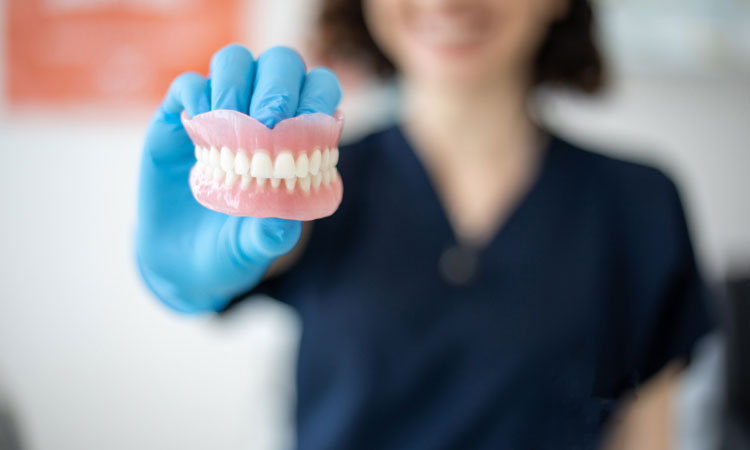Dentures are a common solution for people who have lost their natural teeth and are looking to restore their ability to eat, speak, and smile. While dentures offer numerous benefits, some individuals may experience a side effect known as dry mouth.
In this article, we will explore the relationship between dentures and dry mouth, the potential causes of this condition, and effective strategies to manage and prevent dry mouth while wearing dentures.
Understanding the link between Dry Mouth and Dentures
Dry mouth, also known as xerostomia, is a condition characterized by a lack of saliva production in the mouth. Saliva plays a crucial role in maintaining oral health by lubricating the mouth, neutralizing acids, and washing away food particles and bacteria. When saliva production decreases, it can lead to discomfort and various oral health issues.
Can Dentures Cause Dry Mouth?
Dentures themselves do not directly cause dry mouth. However, wearing dentures can contribute to the development of dry mouth symptoms due to certain factors associated with wearing these prosthetic devices.
One of the primary reasons dentures can cause dry mouth is their impact on saliva flow. Dentures cover a significant portion of the oral cavity, which can affect the natural flow of saliva. Reduced contact between the dentures and the oral tissues can interfere with the stimulation of salivary glands, leading to decreased saliva production.
Another factor that can contribute to dry mouth with dentures is the use of denture adhesives. Some individuals use adhesive products to enhance the fit and stability of their dentures. However, certain denture adhesives can contain ingredients that contribute to dry mouth symptoms.
Effects of Dry Mouth with Dentures
A dry mouth can have several negative consequences for denture wearers. Saliva plays a crucial role in maintaining oral health by lubricating the mouth, washing away food particles, neutralizing acids, and preventing the buildup of harmful bacteria.
Without sufficient saliva, individuals may experience difficulties in speaking, chewing, and swallowing. Moreover, dry mouth can contribute to oral infections, bad breath, and an uncomfortable feeling in the mouth.
Causes of Dry Mouth with Dentures
Dentures can contribute to the development of dry mouth due to several factors. Let’s explore some of the common causes:
1. Denture Material and Fit
The material used in dentures and their fit within the oral cavity can affect saliva flow. Ill-fitting dentures can create friction and irritation, leading to inflammation in the mouth. This irritation can interfere with the normal function of salivary glands, potentially resulting in a dry mouth.
2. Reduced Oral Stimulation
Compared to natural teeth, dentures do not provide the same level of sensory stimulation to the oral tissues. This reduction in stimulation can lead to decreased saliva production. The absence of natural teeth roots, which stimulate the jawbone, can also contribute to diminished saliva flow.
3. Saliva Clearance
Saliva aids in the removal of food particles and bacteria from the oral cavity. Dentures can hinder the natural flow of saliva, making it less effective in clearing away debris. As a result, the accumulation of bacteria and plaque may increase, further exacerbating dry mouth symptoms.
Recognizing the Symptoms
Identifying the signs of dry mouth is crucial for prompt intervention. While these symptoms can vary from person to person, some common indicators include:
- Persistent dryness or stickiness in the mouth
- Difficulty in speaking, chewing, or swallowing
- Increased thirst
- Sore throat or hoarseness
- Dry or cracked lips
- Bad breath
- Changes in taste perception
If you experience these symptoms regularly, it is important to consult with your dentist or healthcare provider for an accurate diagnosis.
How to stop Dry mouth with Dentures
If you wear dentures and experience dry mouth, consider the following tips to manage the condition:
Proper Denture Care
One of the first steps in managing dry mouth with dentures is to ensure proper denture care. Regular cleaning of dentures with mild soap or denture cleanser is essential to remove any accumulated debris or bacteria. Dentures should be soaked overnight in a denture cleanser solution to maintain their cleanliness.
Additionally, it is crucial to rinse the mouth and dentures thoroughly after each meal to eliminate food particles and promote saliva production.
Hydration
Staying hydrated is crucial for combating dry mouth. Drinking plenty of water throughout the day helps to keep the mouth moist and aids in saliva production. Sipping water frequently, especially during meals, can also make chewing and swallowing easier for denture wearers.
However, it is important to avoid sugary or acidic beverages as they can contribute to dental problems.
Saliva Substitutes and Moisturizers
For individuals experiencing persistent dry mouth dentures, saliva substitutes, and moisturizers can provide relief. These over-the-counter products come in various forms, such as sprays, gels, and rinses.
In addition, Dry mouth oral spray or Saliva substitutes mimic the properties of natural saliva, moisturizing the mouth and providing lubrication. It is advisable to consult a dentist or healthcare professional to find the most suitable product for individual needs.
Avoiding Irritants
Certain substances can exacerbate dry mouth symptoms. Smoking, alcohol, and caffeine have a dehydrating effect on the body and can worsen dry mouth. It is best to limit or avoid the consumption of these substances to alleviate symptoms.
Additionally, some medications can cause or worsen dry mouth. If denture wearers suspect their medication is a contributing factor, it is important to consult a healthcare professional for potential alternatives or adjustments.
Regular Dental Check-ups
Regular dental check-ups are crucial for individuals wearing dentures, especially those experiencing dry mouth. Dentists can assess the oral health status and provide recommendations tailored to specific needs. They can also ensure that dentures fit properly and make adjustments if necessary.
Furthermore, dentists can identify any underlying issues contributing to dry mouths, such as oral infections or ill-fitting dentures, and address them accordingly.
While dentures themselves do not cause dry mouth, wearing them can contribute to the development of this condition. Reduced saliva stimulation, denture adhesives, and mouth breathing are common factors associated with dry mouth in denture wearers.
Moreover, by implementing practical strategies such as staying hydrated, using saliva substitutes, avoiding irritants, practicing good oral hygiene, and scheduling regular dental check-ups, individuals can effectively manage and prevent dry mouth with dentures.
However, if you experience persistent dry mouth symptoms, it is crucial to consult with your dentist for a comprehensive evaluation and appropriate treatment options.
Lubricity is a Proud Supporter of the
What do customers say about Lubricity Dry Mouth Spray?













